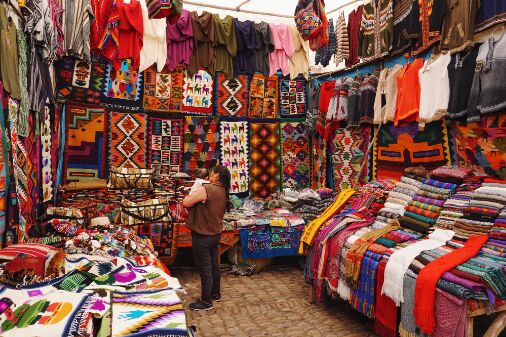Augmented markets
PM's visit to tribal craftswomen three months back has brought about visible differences in the marketing trend of tribal products

March 8, 2021, is a day Sarita Dhurvi can't forget even after three months. This tribal artisan from an obscure village in Dindori district in Madhya Pradesh might well echo Lord Byron's words: 'I woke up one morning and found myself famous!' Why? Although Sarita had been making Gond tribal paintings for years and earning small change selling them to whoever cared to buy them, that Monday was not any usual day.
None less than the Prime Minister of India checked in as her customer! Yes! Narendra Modi admired and actually bought a painting of hers to adorn the walls of the most powerful office in India! If you meet her in person, you can feel that this sudden glory out of the blue is still sinking into her mind! Like Keats, she must be asking herself: 'Do I wake or sleep?'
And so it was for two other tribal women, quite like Sarita: Monisha, a Toda weaver from Tamil Nadu, whose Poothukali shawl won the PM's heart; and Rupali, a Santhal woman, whose hand-crafted file folder made of 'madhurkathi' grass that grows in the 24 Paragana area of Bengal, impressed the PM as something truly ingenious, innovative and local! The PM promptly went vocal about them on Twitter and other media, causing wide ripples!
The lesson in the PM's thoughtful act was clear: that there is a huge talent bank in the hinterland of India – the rural and, more particularly, the tribal
lands. This India, these Indians, and their amazing products need to be given the market attention that they deserve. Such attention is due not because the artisans belong to underprivileged tribes, but because their products are excellent by any standards of excellence. Not just the PMO, even the White House would love to buy these products if only it gets to know about them.
Enabling such market focus is a duty of the government, a Constitutional obligation. Tribal Cooperative Marketing Federation of India (Trifed), under the Ministry of Tribal Affairs, is mandated to address this obligation. To this end, TRIFED has promoted Tribes India, a chain of 130 showrooms across India that market a range of products from tribal artisans. These products include fabrics, paintings, handicraft, forest-sourced food and health products, exotic jewellery, utility products, and a host of gift items in a wide price range. These showrooms are strategically located in airports, prime commercial districts in metros and large cities and other locations of high footfalls of potential buyers. The website of Tribes India carries the complete list of outlets.
TRIFED realized that the shopping culture is shifting from showroom mode to online mode. To keep pace with this trend, TRIFED has set up an e-portal, www.tribesindia.com. The object is to put tribal artisans and products on the platform of the global e-market. The intent is to achieve several goals at once. The demand for the products will expand exponentially; the middleman and his share will accrue to the tribal artisan; the artisan will move on from distress-price to best price, and all these together will result in strengthening tribal livelihoods without removing them from their habitats. This implies tribal empowerment in the truest sense. If the tribes turned underprivileged, a major reason for this was illiteracy. In today's world, literacy has a new avatar: e-literacy, the ability to sell online. The amazing opportunity online commerce offers is to democratize peoples, cutting across nationality, gender, and geographical location. The Internet has provided new avenues to market linkage. This has put Sarita in remote Dindori at par with a merchant in Mumbai. Both can connect with equal ease to a buyer, say, in New York. It would be a sin to deprive the tribal artisans and producers of the opportunity online commerce offers. Our intention, therefore, is to go vocal about the local, to make it global.
After he had done his shopping of tribal products online on the portal of Tribes India, the Prime Minister tweeted good words and shared his experience with his cabinet colleagues. Soon, we had celebrities visiting our portal and shopping. Whereas the portal earlier had a modest 2,000 visitors a day, the number soared to over 30,000 overnight. This is the power a leader wields. What the Prime Minister did is what TRIFED would like to see every Chief Minister and every Corporate leader doing: shop on Tribes India, and then encourage their subordinates to do likewise. Let your Corporate shopping for gifts, folders, fabrics be guided by a simple principle: Tribal India, first!
Overnight you can help us hugely expand our customer and market base. Tribes India is the one place where when you shop you do more than shopping; you discover a different, vibrant India and strengthen the livelihoods of thousands of Saritas, Monishas and Rupalis. This adds a new dimension to Corporate Social Responsibility. Are the captains of India Inc listening, please?
The writer is the Managing Director of TRIFED, Ministry of Tribal Affairs, Government of India. Views expressed are personal



